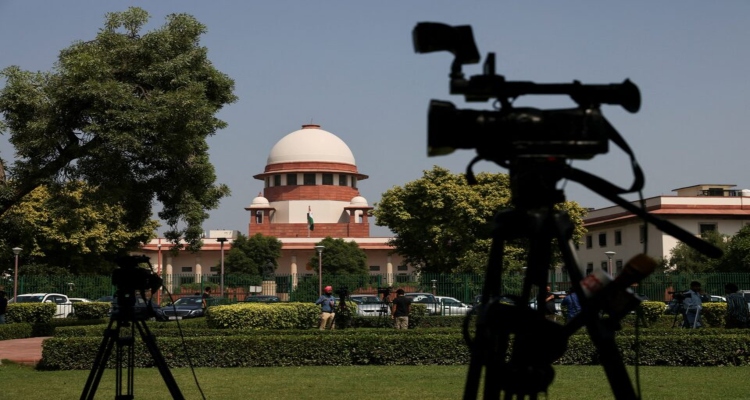
The Supreme Court has agreed to examine the constitutional validity of the West Bengal Taxes on Entry of Goods into the Local Areas Act, 2012, as amended by the West Bengal Finance Act, 2017.
A bench comprising Justice JB Pardiwala and Justice R Mahadevan has issued a notice returnable on April 22, 2025, in response to multiple petitions challenging the Act.
The court has also granted interim relief to the petitioners, directing that no coercive action be taken against them until the next hearing.
Background Of The Case
Several companies, including Samsung India, had initially challenged the Act before the West Bengal High Court, arguing that the state lacked the authority to impose entry tax on goods meant for export outside India. In 2013, a Single Judge Bench ruled in favor of the companies, striking down the law on the grounds that it was not a compensatory tax and violated Articles 309 and 304(a) of the Constitution.
However, the West Bengal government appealed, and the division bench put the Single Judge’s order on hold. Meanwhile, after the introduction of Goods and Services Tax (GST) through the 101st Constitutional Amendment in 2016, the state amended the Entry Tax Act retrospectively through the Finance Act, 2017, giving it legal backing.
In a later ruling, the division bench upheld the tax, prompting the petitioners to approach the Supreme Court.
Arguments From Both Sides
The petitioners, represented by Senior Advocates Arvind P. Datar, Balbir Singh, Shyam Divan, and Kavin Gulati, argue that the 101st Constitutional Amendment did not grant the state the legislative power to validate the retrospective amendments.
On the other hand, Senior Advocate Rakesh Dwivedi, appearing for the West Bengal government, cited the Supreme Court’s ruling in State of Telangana v. Tirumala Constructions and the landmark 9-judge bench decision in Jindal Stainless Ltd. v. State of Haryana.
In Tirumala Constructions, the Supreme Court had interpreted Section 19 of the 101st Amendment, which allowed existing tax laws to continue, be amended, or repealed during the transition to GST. The West Bengal government argues that this provision gives the state the authority to modify the Entry Tax Act.
Court will now hear the matter and decide whether West Bengal’s retrospective amendments to the Entry Tax Act were legally valid. The next hearing is scheduled for April 22, 2025.
Read More: Supreme Court, Delhi High Court, States High Court, International




